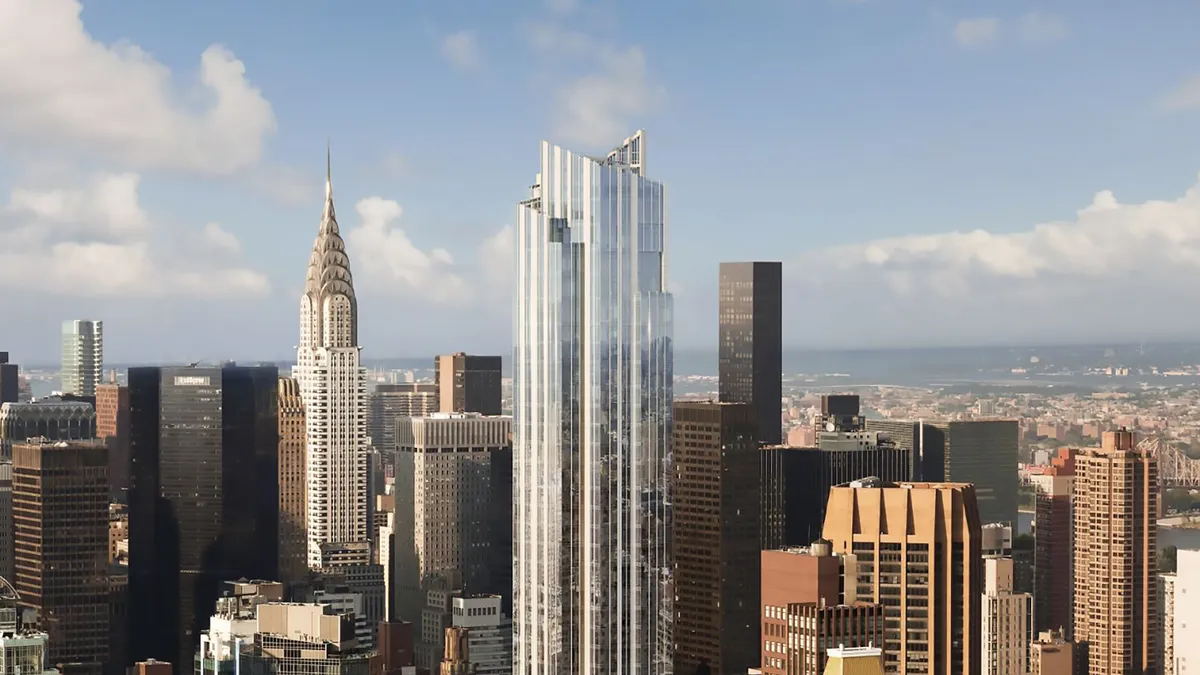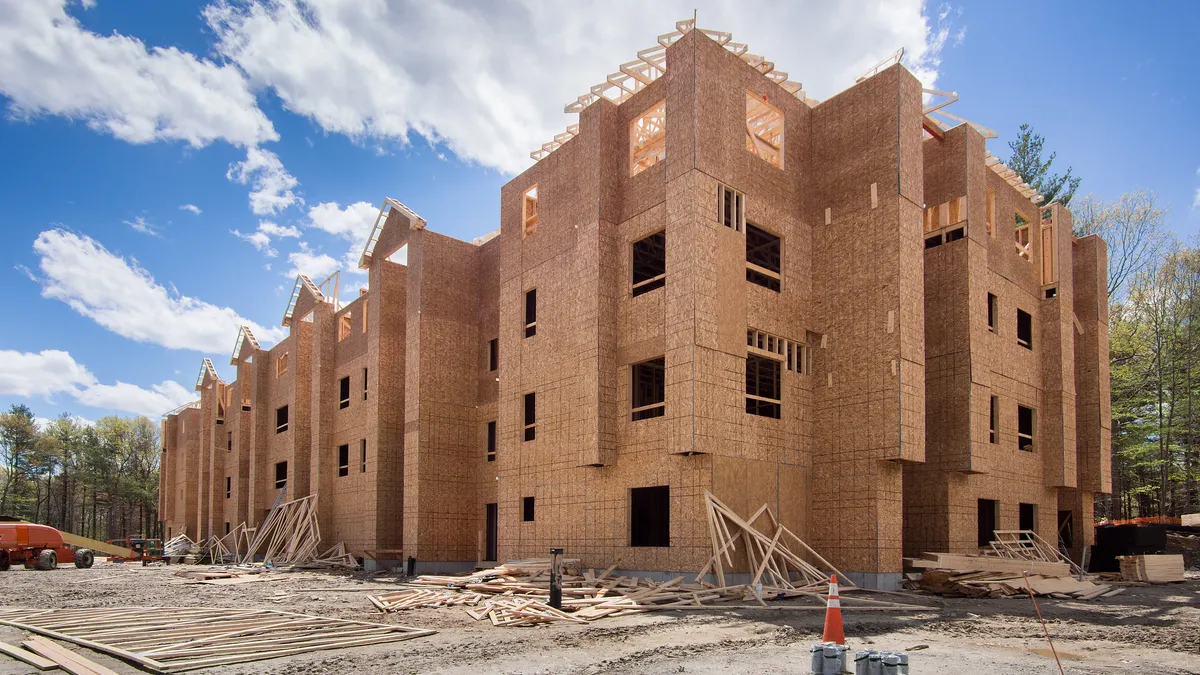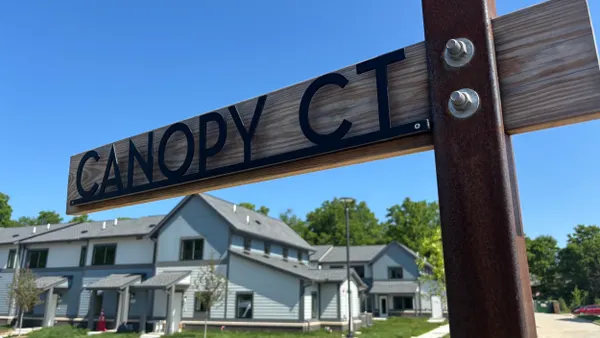FirstService Residential, the property management subsidiary of Toronto-based FirstService Corp., has added more than 1,350 new multifamily units to its New York City portfolio over the past six months, according to a press release. All of the properties will be incorporated into the property manager’s energy efficiency and building decarbonization program.
The new multifamily clients include:
- Madison House in Manhattan’s NoMad neighborhood.
- 100 Eleventh Avenue, designed by Pritzker Prize laureate Jean Nouvel.
- 25 Bond Street in NoHo.
- One Boerum Place in Brooklyn.
- Parkway Village, a 675-unit garden-style community in Briarwood, Queens.
“The majority of our deals really come to us organically…from our existing network of our developer and owner and institutional partners that we already do business with,” James Bovino, vice president of business management for FirstService Residential, told Multifamily Dive about the new portfolio additions. “From there, those same developer partners or those owner groups will often refer us out to new clients that we have not worked with before. And this is especially true in the multifamily business.”
In total, FirstService Residential manages more than 1.7 million condominiums, co-ops and multifamily residential units across the country, according to the company. In the New York City area alone, the firm manages nearly 90,000 units across more than 600 properties. About 135 of these NYC properties are multifamily rental, covering about 12,500 units, according to Bovino.
The company’s management strategy draws significant inspiration from the hospitality model. “[We’re investing in] a great deal of investment in hospitality development for our associates as well for our property managers and specialists,” Bovino said. “Residents today want to feel like they live in a hotel… [and] in today's environment, the modern renter wants to have the same experience that they would have gotten from full ownership in regards to amenities that are being offered and luxury levels of service.”
Upgrading for the future
The company’s management focus also includes energy efficiency consulting through its FirstService Energy subsidiary. Using utility bill and reports data from a given community, the FirstService Energy team can recommend energy-efficiency upgrades or changes to a property based on its current energy performance.
“We started out of a need,” Kelly Dougherty, president of FirstService Energy, told Multifamily Dive. “Property managers have to manage buildings, and we started FirstService Energy to help have an in-house resource for those energy-related decisions.”
FirstService has offered this service for properties in New York, New Jersey, Pennsylvania and Illinois for the past decade, and has recently expanded the platform into properties in Boston, Washington, D.C., Virginia and Delaware. The firm has also broadened the scope of its work to include carbon reduction — a regulatory requirement in some jurisdictions, including New York City, Washington, D.C., Boston and Philadelphia.
“A lot of that has to do with electrification of systems,” Dougherty said. “As the grid becomes more green and is running on renewables, we at the building level are already electrified, which makes the building pretty much carbon free.”
This is a complicated process for which progress may take years — especially for older high-rise properties. “We’re working on that process in many [areas] based on regulatory compliance,” Dougherty said. “A lot of it has to do at this point with educating because board members may not even be aware of the regulations that are coming down the pike.”
Unlike simpler energy-efficiency upgrades like LED lighting, changing out the building’s utility structure or bringing in more electrical power is an invasive process without an immediate financial return. Still, Dougherty’s team is undeterred.
“You’re making an investment in the future,” Dougherty said. “[Carbon reduction] is a hard sell, but it’s something that, even if there isn't a requirement, we are trying to educate boards on this pathway forward. Because ultimately, one day, everyone's going to have to do it.










